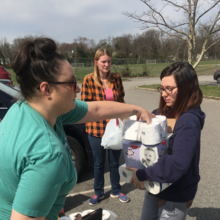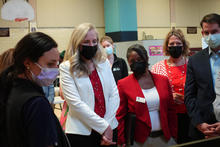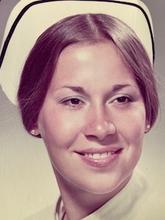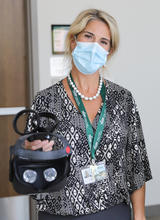- September 28, 2023
The College of Public Health + Fuse at Mason Square accelerate potential for Virtual Reality-enhanced learning opportunities
- March 1, 2023
Julie Kaplan to lead fundraising efforts for College of Public Health
- February 28, 2023
On the same day National Nutrition Month kicks off, millions of individuals and families in the U.S. who currently receive benefits from the Supplemental Nutrition Assessment Program (SNAP) will see a decrease in their federal food benefits. On March 1, pandemic emergency allotments to SNAP are set to end–cutting benefits by $90 per month per person (on average).
- February 17, 2023
Media Tip Sheet Meat Packing Facilities Have High Rates of Injury - Unsafe Working Conditions for Children
- February 16, 2023
About the Marburg Virus - from Infectious Disease Expert Amira Roess
- August 31, 2022
National, state, and county leaders learned about the Mason and Partner Clinics, which prepare students to serve vulnerable populations and increase access to care for marginalized communities.
- May 10, 2022
As Dean Germaine Louis retires at the end of the 2021-22 school year, we reshare this story where she reflects on the similarities in the beginning and end of her career.
- April 20, 2022
The George Mason University College of Public Health announced that its PhD in Health Services Research with concentrations in Health Systems and Policy and Knowledge Discovery and Health Informatics have been accredited by the Council on Education for Public Health (CEPH).
- March 23, 2022
As the region approached the second anniversary of declaring a state of emergency for the COVID-19 pandemic, the College of Health and Human Services convened academic, health department, and philanthropy leaders to discuss the current public health priorities and opportunities to partner in transforming the region’s public health infrastructure.
- September 24, 2021
Bethany Cieslowski, calls herself a disruptor – but don’t just take her word for it. One just needs to tour the virtual reality and simulation space on the 2nd floor of Peterson Health Sciences Hall with Cieslowski or participate in one of her VR/Sim training sessions to confirm that she has already brought positive change and vision to the College of Health and Human Services.









